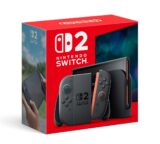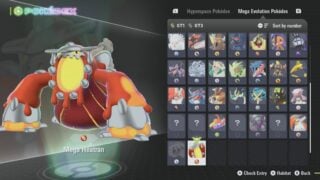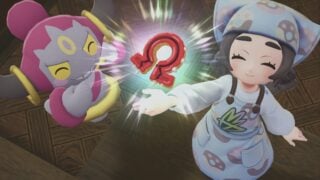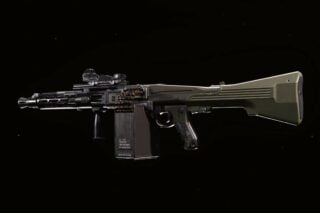The 25 best N64 games you need to revisit
On its anniversary, these are the best Nintendo 64 games you need to play on the classic console
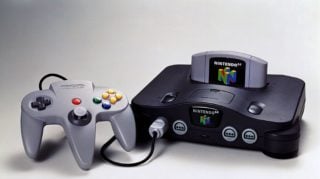
To celebrate its 25th birthday, we’re running down the 25 best N64 games, as decided by VGC’s panel of experts.
Although it was significantly outsold by the rival PlayStation, few consoles are as fondly remembered as the N64 and its strong influence continues to this day.
N64’s impact is strongest in its excellent first-party software and it’s fair to say that the best N64 games shaped the way 3D games are designed, right up to current consoles.
There were 3D platformers before Super Mario 64 and first-person shooters before GoldenEye, of course, but while its N64 creations weren’t always the first of their kind, thanks to Nintendo’s innovation they were the first to capture the imagination of players at a mass-market scale.

Overall, the Nintendo 64 didn’t have a lot of games: The company’s infamous split from Sony led to not only a new console war between companies, but a format war too: CDs versus cartridges.
Ultimately, most developers sided with Sony and its use of CD-ROMs. Even though the N64’s cartridges meant near-instant load times, the fact was these cartridges cost a fortune to make.
With a game library so small then, you’d think coming up with a list of the 25 best N64 games list would be tricky. But the N64’s arsenal consisted of so many gems that, on the contrary, there are many great games that didn’t make the cut.
Best N64 Games: #25 – 21
Wave Race 64

What it is: The sequel to Wave Race on the Game Boy.
Why it’s Essential: Nintendo fans keep asking the Japanese giant for a new F-Zero game, but many would rather see a new Wave Race instead. There’s something oddly satisfying about whipping your jetski around corners, getting flung about by the unpredictable waves.
Continuing the theme of Nintendo nailing it the first time around, Wave Race 64 was its first attempt at doing realistic water physics and even today it’s still convincing.
Blast Corps

What it is: A top-down action game in which you’re in charge of destroying a series of buildings to clear a path for an out of control, unstoppable truck carrying a nuke.
Why it’s Essential: Blast Corps isn’t as immediately accessible as Banjo or many of Rare’s other games, but that’s sort of the point. Each level is essentially a time-based puzzle, as you try to figure out not only which buildings to destroy before the oncoming nuke hits them, but also what you’ll use to destroy them in the most efficient manner.
This is where Blast Corps’ most genius mechanic comes into play: the ability to get out of one vehicle, leg it across the game world and climb into another. Not only does this add a massive level of strategy to proceedings, it also keeps things fresh as one minute you’re driving a bulldozer and the next you’re a giant mech that destroys buildings by somersaulting into them. To this day, 25 years later, there’s still nothing like it.
Mario Party 1, 2 and 3

What they are: A trio of interactive board games in which players move their Mario character of choice around a board in an attempt to collect more stars than anyone else.
Why it’s Essential: If you needed more literal evidence of N64’s reputation as a party console, here’s the Mario Party series. Essentially creating another genre that continues to grace consoles to this day (or plague them, depending on your viewpoint), the Mario Party games are the pinnacle of ‘everyone can join in’ multiplayer.
Not least of all because, being based on board games, there was a degree of luck involved, meaning sometimes your elder family members would be able to score a rare victory.
Some of the mini-games were notorious for making you spin the Control Stick round and round as quickly as possible. This spawned its own metagame as players tried to see what would wear out first: their controller or the skin on their palms.
If you only want to play one of them, get Mario Party 2. It’s generally considered to be the best of the bunch.
Star Wars Rogue Squadron and Episode I: Battle For Naboo

What they are: A pair of flight combat games set in the Star Wars universe. Rogue Squadron is set between Episodes IV and V, while Battle For Naboo is based on Episode I.
Why it’s Essential: When the GameCube launched with Rogue Squadron II it was quickly praised as one of the finest Star Wars games ever made. Spare a thought, though, for the two N64 games that preceded it, because what they lack in comparative graphical oomph they still more than make up for with gripping air combat.
Rogue Squadron in particular was notable for its brilliant unlockables. Collecting medals on each level unlocks classic Star Wars battles like the Death Star Trench run and the Battle of Hoth, while the Millennium Falcon and a TIE Interceptor can be unlocked if you beat those bonus levels. Best of all though, developer Factor 5 snuck a hidden Naboo Starfighter from Episode I in there, a spoilerific decision considering the game launched six months before the movie.
Amazingly though, thanks to a clever code scrambling technique that meant cheat cartridge hackers couldn’t find it, the ship remained hidden on the cartridge for that entire six-month period until Episode I hit the cinemas, at which point LucasArts revealed the code to unlock it.
Sin & Punishment

What it is: An on-rails shooter developed as a collaboration between Nintendo and shoot ‘em up experts Treasure.
Why it’s Essential: Sin & Punishment was something of a holy grail for many western Nintendo 64 owners, because it wasn’t actually released here. Despite featuring English voice acting, the fact Japan didn’t get it until November 2000 – by which point the N64 was essentially dead elsewhere – meant it never saw an overseas launch.
Those who did manage to play it discovered it was worth the effort too: it’s a fantastic shooter that’s also one of the most visually impressive games on the system. Thankfully, western Nintendo fans did finally get a chance to play it seven years later when it came to the Wii Virtual Console, and it still held up (as it does today).
Best N64 Games: #20 – 16
Beetle Adventure Racing

What it is: A nippy little EA racer that, you guessed it, focuses on VW Beetles. Looks great and has some lovely long tracks.
Why it’s Essential: The racing genre is arguably the most competitive in the N64’s games library, so it’s no small compliment when we say that Beetle Adventure Racing, with its amazing track design and intense action, is one of the most entertaining racers on the platform. Give it a try.
Conker’s Bad Fur Day

What it is: Rare’s notorious action platformer game starring a foul-mouthed squirrel.
Why it’s Essential: Its controls and gags might feel a tad dated, but the sheer variety present in Rare’s R-rated platformer means that Conker’s Bad Fur Day is still a thoroughly enjoyable adventure 25 years later.
1080° Snowboarding

What it is: A snowboarding game developed by Nintendo EAD (now EPD).
Why it’s Essential: There had obviously been snowboarding games before 1080° (most notable PlayStation title Cool Boarders), but Nintendo’s offering raised the bar. It was the first snowboarding game to acknowledge that there are different types of snow, and that they look and behave in different ways.
As such, racing through fluffy, freshly fallen snow slowed you down more but gave you more control than going over the more packed-in, harder snow. It’s a difficult game to master, but once you get the hang of it you’ll love it, terrible music and all.
Pilotwings 64

What it is: The second game in the Pilotwings series.
Why it’s Essential: Like F-Zero, the original SNES version of Pilotwings was a brilliant way of showcasing the system’s Mode 7 graphics. Unlike F-Zero though, Pilotwings was also an attempt to take a genre that was more associated with home computers – the flight sim – and make it more accommodating and accessible to console players.
The SNES game was great but Pilotwings 64 was where the series really came into its own, the introduction of polygonal landscapes allowing players to fly wherever they wanted and explore each environment. Although it featured standard missions like its predecessors, Nintendo’s addition of a Birdman mode was a touch of genius, letting players gently fly around each area at their own pace and soak in the atmosphere.
Paper Mario

What it is: The first game in the Paper Mario series. It’s an RPG with a unique art style in which, as the name suggests, Mario and the other Mushroom Kingdom residents are all made out of paper.
Why it’s Essential: Most people consider The Thousand-Year Door on GameCube as the best Paper Mario game, but the original shouldn’t be discounted either. It shares the same wonderful art design and hilarious sense of humour as its successor, and puts a big smile on our faces.
Of particular note is the way that, as in the second game, you can befriend ‘goodie’ versions of eight classic Mario enemies who each give you special abilities. What The Thousand Year Door can’t boast, however, is the presence of Goombario, a Goomba who’s Mario’s biggest fan. He’s one of the best characters in any Mario game.
Best N64 Games: #15 – 11
Mystical Ninja Starring Goemon

What it is: The fifth game in the Ganbare Goemon series. It’s an action platformer known for its odd sense of humour.
Why it’s Essential: Mystical Ninja is one of those games that usually never sees the light of day outside of Japan because it’s just a bit too odd for western audiences. Yet, somehow, this strange tale of a ninja trying to stop a bunch of dancers in a spaceship shaped like a peach from firing a laser that turns Japan into a stage show managed to make it to our shores.
Judged solely on its gameplay it’s a fun action platform game with responsive controls and few frustrating moments. Add its strange comedy into the mix though and you’ve got a game that should have you chuckling bemused guffaws throughout.
Star Wars Episode I: Racer

What it is: The Episode I podracing scene turned into a video game.
Why it’s Essential: We can debate back and forth about whether The Phantom Menace was actually a good film, but it’s harder to argue against one specific thing: the podrace scene was cool. It’s no surprise, then, that the game based on that very scene also turned out to be pretty great, expanding on its lore by adding a bunch of playable characters and a wide variety of tracks.
While it’s been slowed down a bit from the movie version to ensure it’s actually playable – racing purely with your instincts isn’t fun if you aren’t a Jedi – it still runs along at a fair pace. It also features a really satisfying turbo boost and cracking music. In short, it’s the best thing about Episode I.
International Superstar Soccer 64, 98 and 2000

What they are: Konami’s successors to its SNES football games ISS and ISS Deluxe and the early ancestors (of sorts) of the Pro Evolution Soccer series.
Why it’s Essential: The first ISS was one of the best sports games of the 16-bit era. Even back then in the early days of EA and Konami’s football rivalry, the idea was already beginning to form that FIFA appealed to the mainstream while Konami’s series appealed to more serious players.
When ISS made the move to the Nintendo 64 there was some concern that the move to a new engine may have disrupted what was already a pretty solid football experience. It turns out it actually improved on it drastically. This is partly because ISS 64 introduced two new moves to the football genre – the one-two pass and the through ball – the latter in particular completely transforming the way football games were played.
The N64 ISS games were so far ahead of anything else at the time, and while they were eventually surpassed by Konami’s own Pro Evo series, they’re still fantastic arcade-style football titles.
Diddy Kong Racing

What it is: Rare’s take on Mario Kart.
Why it’s Essential: Although Mario Kart 64 was the popular choice when it came to N64 multiplayer racing, Diddy Kong Racing offered more for the single-player gamer. It was essentially the Super Mario 64 of kart games, with a big open world hub and doors that required a certain number of collectibles before you could unlock them and play the next track.
Boss battles were thrown into the mix too. These were notoriously difficult, testing your racing abilities (and more importantly your boosting abilities) to the limit. It also had an interesting character roster, consisting of the titular Diddy and a bunch of others nobody had ever heard of: over time though, two of them – Banjo and Conker – would end up starring in their own games.
Super Smash Bros.

What it is: The first in the series of Nintendo’s four-player all-star fighting game, starring the likes of Mario, Link, Pikachu and Samus.
Why it’s Essential: It may look positively prehistoric now compared to the Nintendo Switch version, but the N64 Smash Bros still has a lot going for it. Like so many other N64 games on this list, it’s a testament to its mechanics that playing it still feels similar to the vastly visually improved sequels released in the decades since.
It also had a cracking single-player mode – something the most recent instalment can’t exactly boast – which incorporated 14 levels including three mini-games. It’s basic, then, but get a bunch of people to play it and you’ll still have a blast.
Best N64 Games: #10 – 6
WWF No Mercy

What it is: The second of only two WWE-licensed games developed by AKI Corporation.
Why it’s Essential: WWF No Mercy was released in November 2000 and there arguably hasn’t been a wrestling game since then that’s been more entertaining to play. Yes, the WWE 2K series looks incredible and has more features than a man with four heads, but when it comes to the actual grappling gameplay on offer it’s still lacking No Mercy’s depth.
It’s a slow-paced game but a wonderfully tactical one: put two No Mercy experts in the ring and the result is a technical masterclass in reversals, risks and Rocks. It also had a ridiculous roster of 74 wrestlers – dwarfing anything at the time – with such bizarre unlockable characters as Linda McMahon, ring announcer Howard Finkel and one of pimp character The Godfather’s… ‘friends’.
Star Fox 64

What it is: The sequel to Star Fox, Star Fox 64 (aka ‘Lylat Wars’ in Europe) saw Fox McCloud and his wingmen take on the evil Andross once again.
Why it’s Essential: The first Star Fox was notable for the Super FX chip, a nifty little gizmo that let the SNES display rudimentary polygonal graphics. When it came to making a sequel for a system where polygons were the order of the day then, Star Fox 64 didn’t mess around.
Although you could argue it’s actually a re-imagining of the first game, Star Fox 64 nailed the Star Wars feeling by doing everything better: better graphics, better explosions, a better soundtrack and better action. It also introduced the world to force feedback thanks to the Rumble Pak, a chunky little block that plugged into the Nintendo 64 controller and added vibrations for the first time.
Its on-rails gameplay may not be to everyone’s tastes and these days it’s visually very blurry and murky, but in our eyes, Star Fox 64 is still a fantastic slice of action.
Mario Kart 64

What it is: The second game in the Mario Kart series.
Why it’s Essential: Before GoldenEye came on the scene, Mario Kart 64 was already cementing the N64’s reputation as the definitive party console. It’s still tremendous fun today too, even if the handling’s a bit dated.
F-Zero X

What it is: The sequel to Nintendo’s futuristic SNES racer. A ridiculously fast racing game with up to 30 cars on-screen at the same time.
Why it’s Essential: When most people think about F-Zero they either picture the SNES original or the cult GameCube favourite F-Zero GX. However, our favourite was the N64 offering, mainly because of the ridiculous Death Race mode. In this, you race endlessly along a completely straight track and attempt to destroy all 29 other racers by slamming and performing spin attacks into them. The aim is to kill everyone as quickly as possible.
Of course, you’ve also got the main GP modes and the like, but Death Race is something unique to F-Zero X that was never seen again. It may not be much to look at in still screenshots, but lightning fast 60fps gameplay on the N64 was rarer than uncooked unicorn meat and so it ran beautifully.
Banjo-Kazooie and Banjo-Tooie

What they are: A pair of 3D platformers from UK studio Rare when it was at the peak of its powers.
Why it’s Essential: When you think of iconic Nintendo 64 platformers, Super Mario 64 is likely the first that springs to mind. But Mario’s fifth console adventure was Nintendo’s only proper attempt at 3D platforming on the N64, leaving it up to other studios to fill the void for fans of this newly-created genre.
Step forward Rare with the brilliant Banjo-Kazooie, a platformer that was packed with fun worlds to explore, catchy music, likeable characters and a typically British sarcastic sense of humour. Its sequel offered more of the same, too.
Best N64 Games: #5 – 1
GoldenEye 007

What it is: Rare’s Bond-themed multiplayer classic that brought the first-person shooter to the mainstream.
Why it’s Essential: GoldenEye wasn’t the first FPS. It wasn’t even the first well-known one: Doom, Duke Nukem 3D and Quake all came before it. But as the first console FPS to make multiplayer deathmatches easy to set up and play, it introduced the genre to a whole host of gamers.
GoldenEye was groundbreaking. Play it today and it hasn’t aged too well: aiming is horrible, the character models are laughable and the frame rate is approaching slideshow levels. But despite all that, it still has a charm that continues to make it fun to this day.
Perfect Dark

What it is: Rare’s follow-up to GoldenEye, this time ditching the Bond licence in favour of an original plot involving secret agent Joanna Dark.
Why it’s Essential: Perfect Dark was a great game for all the reasons GoldenEye was, but it just did everything better. It looked much more detailed (thanks to the Expansion Pak which gave the N64 extra power), had a wider range of weapons including extraterrestrial guns, and a generally more complex plot.
Most notable, though, was the improved multiplayer. As well as all the options GoldenEye players had come to expect, Perfect Dark also offered co-op and Counter Operative mode, in which one player tried to perform the single-player missions while another controlled an enemy trying to kill them. Add to this the ability for solo players to add bots and you had a game that blew GoldenEye out of the water in every possible parameter.
Super Mario 64

What it is: The fifth game in the Super Mario console platforming series and the one that essentially laid out the rules for the 3D platformer genre.
Why it’s Essential: Mario 64 was the first game to truly define the 3D platformer genre, inspiring countless games to follow.
Now at 25 years old, it still feels better to play than many modern platformers: proof, as if you needed it, that Nintendo absolutely nailed Mario’s jump from 2D to 3D at the first time of asking.
The Legend Of Zelda: Majora’s Mask

What it is: The follow-up to Ocarina Of Time.
Why it’s Essential: Ocarina Of Time was the Star Wars of open-world adventure games: the one that broke ground, blew everyone away and transformed the way we looked at the medium.
Continuing the analogy, then, Majora’s Mask was the Empire Strikes Back of the series. In other words, it was the one that was dark and depressing. It was also a great example of Nintendo’s ability to think outside the box and summed up the company’s tendency to make the most of the limitations presented to it.
With a development deadline of only one year (Ocarina took four), Aonuma’s Nintendo EAD team came up with the idea of the game’s famous looping three-day cycle. This let them use the same assets and focus on building a great narrative instead. The result is a game that – rather than the sprawling epic of Ocarina – tells a more insular, intricate and intense story.
The Legend Of Zelda: Ocarina Of Time

What it is: The fourth Zelda console adventure. Link has to travel through time to stop the evil Ganondorf from getting his manky mitts on the Triforce.
Why it’s Essential: It may have recently been surpassed by the incredible Breath Of The WIld, but Ocarina Of Time was so important to the evolution of the open-world adventure that it remains a compelling game all these years later.
Hyrule Field doesn’t feel as vast as it did back then, and the midi music doesn’t sound quite as grandiose as it used to. But it’s still a fantastic adventure with so much to see and do, and the 3DS re-release shows it still holds up alongside the modern equivalents it inspired. Ocarina was ahead of its time. Which is quite fitting.
Honourable mentions
- Tony Hawk’s Pro Skater 2 and 3: The second and third games in Activision’s groundbreaking skateboarding series, which were so successful they’re often credited with reviving the sport’s popularity.
- Ridge Racer 64: An excellent N64 entry in arguably the greatest arcade racing series ever made.
- Hydro Thunder: Midway’s arcade racer in which players guide a speedboat through a variety of waterlogged environments.
- Excitebike 64: Sadly underrated racer released when the N64 was on its deathbed. A great motocross game with a brilliantly realistic feel of momentum when jumping.
- Jet Force Gemini: Another Rare gem, this third-person shooter in which you gun down hordes of insects is also available as part of the Rare Replay compilation on Xbox One.
- Kirby 64: The Crystal Shards: An old-school 2.5D platformer in which Kirby has to defeat the evil Dark Matter while collecting pieces of a sacred crystal.
- Resident Evil 2: A port of Capcom’s survival horror sequel, released nearly two years after it originally launched on PlayStation.
- Mario Tennis: The first in Camelot Software Planning’s series of Mario tennis games, and the debut appearance of Waluigi.
- Mario Golf: Camelot doesn’t just do good tennis games: This golfing effort was also a solid affair with a generous eight courses to play through.
- Mickey’s Speedway USA: One of the Rare Nintendo 64 games that most people tend to forget, this was no Diddy Kong Racing but still offered a load of karting fun for Disney fans.
- Monster Truck Madness 64: A N64 port of the cult PC game, featuring a bunch of off-road races with comedy floaty physics. It also included trucks based on WCW wrestlers for some reason.
- Destruction Derby 64: A needlessly late port of the PlayStation game (it came four years later) in which the aim is to smash up rival cars.
- F-1 World Grand Prix I and II: A pair of Formula One games developed by Paradigm Entertainment, a Texas-based studio who had previously helped Nintendo with Pilotwings 64.
- NFL Quarterback Club 99: The best American football game on the N64, best known for supporting the N64’s rarely used 480p hi-resolution mode (instead of its normal 240p mode). It looked great.
- Pokemon Snap: A Pokemon shoot ’em up. Of course, by ‘shoot’ we mean with a camera.
- Top Gear Rally 1 & 2: A pair of rally games that had great physics and realistic suspension for the time. A genuine challenger to the Colin McRae games.
- WCW vs nWo: World Tour, WCW/nWo Revenge and WWF Wrestlemania 2000: Before there was WWF No Mercy there were these three other offerings from AKI Corporation, the same developer. They all have the same engine, so are worth playing too if you fancy trying a different roster out.
- Wipeout 64: The only game in the generally PlayStation-focused series to appear on a Nintendo system, and a very good one at that. It had an iffy frame rate and load times (rare for an N64 cart) but its analogue steering gave it an edge over the early PlayStation entries.
- World Cup 98: FIFA 98 was the first proper quality boost for EA’s football series and it was great fun to play.
- Yoshi’s Story: The sequel to Yoshi’s Island. It was criticised at the time for being a little too short and easy, but with the likes of Yoshi’s Woolly World and Kirby’s Epic Yarn these days showing that isn’t a bad thing, it’s aged well as a result.









